
The Doors were an American rock band formed in Los Angeles in 1965, with vocalist Jim Morrison, keyboardist Ray Manzarek, guitarist Robby Krieger and drummer John Densmore. They were among the most influential and controversial rock acts of the 1960s, primarily due to Morrison's lyrics and voice, along with his erratic stage persona and legal issues. The group is widely regarded as an important figure of the era's counterculture.
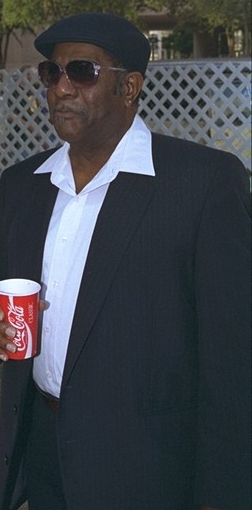
Johnnie Clyde Johnson was an American pianist who played jazz, blues, and rock and roll. His work with Chuck Berry led to his induction into the Rock and Roll Hall of Fame. He was posthumously awarded the Congressional Gold Medal for breaking racial barriers in the military as a Montford Point Marine, where he endured racism and inspired social change while integrating the previously all-white Marine Corps during World War II.

Jamesetta Hawkins, known professionally as Etta James, was an American singer who performed in various genres, including gospel, blues, jazz, R&B, rock and roll, and soul. Starting her career in 1954, she gained fame with hits such as "The Wallflower", "At Last", "Tell Mama", "Something's Got a Hold on Me", and "I'd Rather Go Blind". She faced a number of personal problems, including heroin addiction, severe physical abuse, and incarceration, before making a musical comeback in the late 1980s with the album Seven Year Itch.
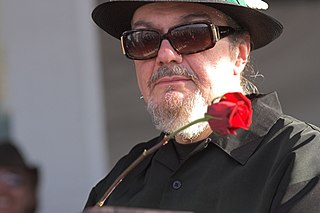
Malcolm John Rebennack Jr., better known by his stage name Dr. John, was an American singer and songwriter. His music combined New Orleans blues, jazz, funk, and R&B.
The Grammy Award for Best Latin Pop Album is an award presented at the Grammy Awards, a ceremony that was established in 1958 and originally called the Gramophone Awards, to recording artists for releasing albums in the Latin pop genre. Honors in several categories are presented at the ceremony annually by the National Academy of Recording Arts and Sciences of the United States to "honor artistic achievement, technical proficiency and overall excellence in the recording industry, without regard to album sales or chart position".

Mr. Bad Example is an album by the American musician Warren Zevon, released through Giant Records in October 1991. Zevon supported the album with a North American tour, with the Odds serving as both opener and backing band.

Forever Blue is the fifth studio album by American rock and roll musician Chris Isaak. It was released on May 23, 1995. The album included three singles: the Grammy-nominated "Somebody's Crying"; "Baby Did a Bad Bad Thing," which was featured in Stanley Kubrick's final film, Eyes Wide Shut; and "Graduation Day," featured in the 1996 film Beautiful Girls. In 1996, Forever Blue was also nominated for a Grammy Award for Best Rock Album, though it lost to Alanis Morissette's Jagged Little Pill.
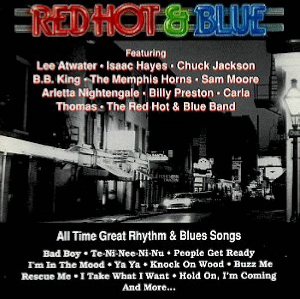
Red Hot & Blue is an album released in 1990 by Lee Atwater, a Republican political consultant in the United States. Atwater wanted to bring to a wider audience the sounds of 1960s Stax Records and southern R&B and blues. "Bad Boy" was released as a single. The title track was nominated for a Grammy Award.

Southern Steel is the fourth studio album by the American guitarist Steve Morse, released in 1991. "Cut to the Chase" appeared on the soundtrack to Ski Patrol. "Simple Simon" was a minor heavy metal radio hit. Morse promoted the album with a North American tour.

The Spin is an album by the American jazz band Yellowjackets, released in 1989. The album title refers to the Earth's rotation. The band supported the album with a North American tour.

Joy is a studio album by the American singer Teddy Pendergrass, released in 1988 on Elektra Records. It was nominated for a Grammy Award, in the "Best R&B Vocal Performance, Male" category.
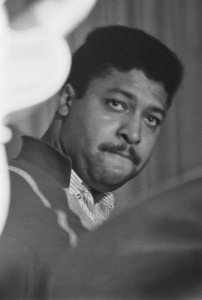
Samuel Julian Lay was an American drummer and vocalist who performed from the late 1950s as a blues and R&B musician alongside Little Walter, Howlin' Wolf, Paul Butterfield, and many others. He was inducted into the Rock and Roll Hall of Fame in 2015.
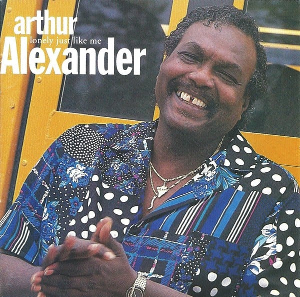
Lonely Just Like Me is the third studio album by the American musician Arthur Alexander, released in 1993. It was Alexander's first album in 21 years. He died shortly after its release. Alexander considered the music to be "country soul".

Another Hand is an album by the American saxophonist David Sanborn, released in 1991.
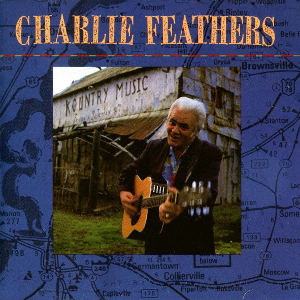
Charlie Feathers is an album by the American rockabilly musician Charlie Feathers, released in 1991. His final studio album, it was part of the Elektra/Nonesuch "American Explorer" series. It was Feathers's only album to be put out by a major label.

East Side Soul is the second album by the American rock and roll band the Blazers, released in 1995. Although often compared to Los Lobos, the band considered themselves to be more of a standard four-piece rock and roll band.
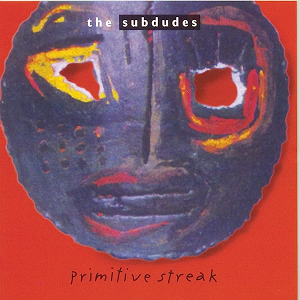
Primitive Streak is an album by the American band the Subdudes, released in 1996. It was a success on Americana album charts. The band supported the album with a North American tour, which included shows with Anders Osborne.
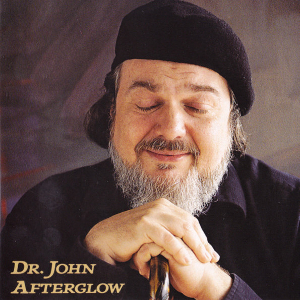
Afterglow is an album by the American musician Dr. John, released in 1995. The majority of the tracks are covers of jazz and blues songs from the 1940s and 1950s; many of the songs were introduced to Dr. John by his parents.

Boozoo Chavis is an album by the American musician Boozoo Chavis, released in 1991. It was part of the Elektra/Nonesuch American Explorer series. The album was the culmination of a comeback for Chavis that had begun in 1984. Chavis supported the album by playing the Newport Folk Festival.
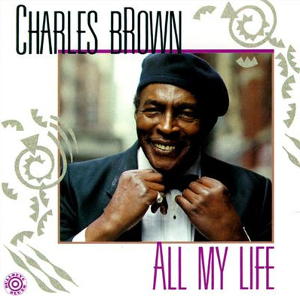
All My Life is an album by the American musician Charles Brown, released in 1990. It was Brown's first album for Bullseye Blues, and part of a comeback effort that began with his previous release, One More for the Road. Brown supported the album with a North American tour.



















